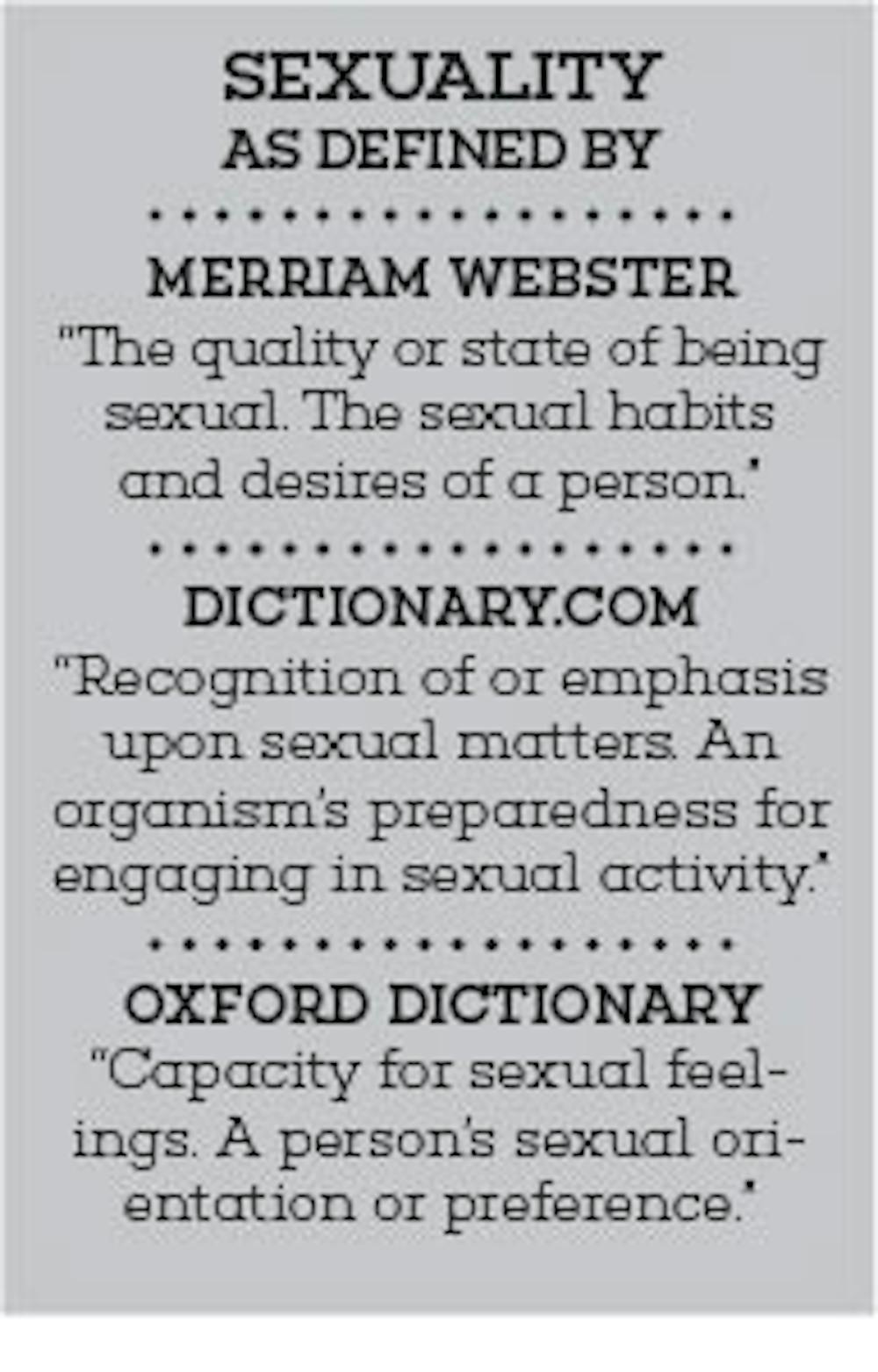By Davis Wetherell | Contributor
The term "sexuality" does not mean a thing. This university talked about something meaningless for a whole week. Yet it was incredibly important.
Let me first point out that the point of my pencil is different than the point of my words (which is nothing like the points in sports). And let me remind everyone that "Buffalo buffalo Buffalo buffalo buffalo buffalo Buffalo buffalo" is a grammatically correct sentence.
In other words, words are fluid; they change, morph and adapt. Buffalo does not have one meaning but multiple: Bison, a city, the verb "to bully." Words cannot be trusted; they are not monosemous.
So, why do we use words if they are untrustworthy? Words are tools for communication. However, if communication is the only goal, then why do we watse tmie splleing crroectly wehn we can undrsatnd each ohetr anwyay? Precision, of course. We want people to understand exactly what we are saying. So what are we saying when we say "sexuality"? Right now, it is not so precise.
Precision comes when we understand how meaning works. When you see the word "cat," you see ink shapes which your brain learned to associate with a sound. This sound recalls an image along with all the connotations you have associated with it (furry, cute, demonic). This all happens instantaneously in your brain, because brains rock. (Rock meaning "are cool," not meaning . . . like . . . stones).
Here's the tricky part. When I say "cat," you probably think of your own cat (or some YouTube cat) and your definition will be based on the cat existing in your subjective experience. You may assume "cat" means a furry animal with four legs that meows. But what if my cat does not have fur, or what if it is missing a leg? My pet is no longer a cat according to your definition. You can see that we may have multiple, though equally true, definitions for something fairly simple.
At each stage of the word recognition process, you are pulling out information from data collected over your subjective experience: The image that appears in my mind for "cat" is the one I own. Thus, my meaning of a word or concept will always be slightly different than yours because subjective experiences are just that: subjective.
Therefore, everyone's definition of "sexuality" is slightly different. So what were we talking about last week? You tell me.
You may argue we were discussing the one universal, objective meaning for "sexuality" as it appears in your dictionary. But there is no such thing as a universal, objective meaning for any word. Time and culture constantly change the meanings of words. The word "gay" now means "homosexual" (or "stupid" as used by insensitive adolescents), when it used to mean "happy." The word "root" is a synonym of "cheer" in America, but a synonym to the F-word in Australia.
On what grounds can we declare one definition more objectively correct than another? We cannot. Words don't have meaning. Not inherently, anyway. Words are no more than verbal icons carrying semantic significance infused by subjective experience.
If simple words like "cat" and "buffalo" can't even hold one meaning, imagine how difficult is it to nail down a single definition of such a complex idea as "sexuality." It's not just difficult; it's impossible. The meaninglessness of words makes it all the more important that we talk about them.
Last week's conversation was an incredibly important one, yet it may have been lost on us that we were all talking about different things. We need to ask one another what our definition of "sexuality" is in order to keep the crucial discussion from Sexuality and the Body alive. To you the word might be blue-and-black, when to your closest friend it might be white-and-gold. The word itself may be meaningless, but the topic is worth all the discussion in the world.





